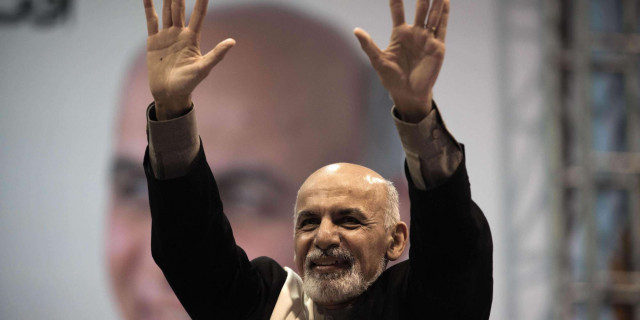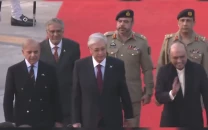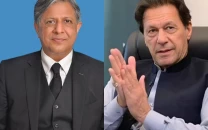Regional trade: Kabul wants Delhi to join Pak-Afghan trade pact
Dastagir says India, Pakistan will first need to normalise their trade ties

Dastagir says India, Pakistan will first need to normalise their trade ties. PHOTO: REUTERS
Afghanistan says it wants India to join the Afghanistan Pakistan Transit Trade Agreement (APTTA) to promote trade in the region.
Pakistan and the landlocked Afghanistan signed APTTA in 2010, replacing the 1965’s Afghanistan Transit Trade Agreement (ATTA).
Kabul insists that APTTA allows Afghan trucks to carry Afghan products to the huge markets of India and China as well as the rest of the world through the seaports of Karachi, Port Qasim and Gwadar.
Pakistan allows Afghan trucks to transport goods up to the border with India but it has not yet permitted Indian products to be exported to Afghanistan.
Afghan Foreign Ministry spokesman Ahmad Shakib Mustaghni says Kabul will welcome India if it joins the agreement. “Afghanistan will consider the proposal if India wants to join APTTA,” Mustaghni said at his weekly briefing.

The comments coincide with the visit of Pakistan’s commerce minister, Khurram Dastagir, to Kabul who met senior Afghan leaders and attended the inaugural session of an exhibition of Pakistani products in Kabul.
Indian ambassador to Afghanistan Amar Sinha has said New Delhi is willing to become party to APTTA, claiming that “Pakistan’s policy issues have hindered Afghanistan’s access to the key Wagah border post.”
“Our desire and our request always has been that we should keep these issues separate. We should allow the people and the businesses to prosper,” the Indian ambassador told Tolo TV in an interview.
On his part Khurram Dastagir told reporters in Kabul that India and Pakistan would need to first take the good-faith step of normalising trade relations. “As for India’s joining this agreement, I think this is, at the moment, premature,” Minister Dastagir said in Kabul on Tuesday, Tolo TV reported.
“Eventually we would like to have a joint South Asia-Central Asia corridor, but you are aware there have been tensions between India and Pakistan since last year.
“We are hoping that these tensions will dissipate, and the first step would be the normalisation of trade between Pakistan and India, and once that happens, I think there will be no impediment in normalising the old relationship between Afghanistan and Pakistan through India,” the Pakistani minister said
The Pakistani delegation arrived in Kabul just a day after the Indian Embassy in Afghanistan delivered an official letter to the Afghan government expressing India’s willingness to join APTTA and enhance its trade ties with Afghanistan, Afghan media has reported.
Dastagir told reporters that Pakistan will build modern land ports this year at the two main border crossings with Afghanistan to facilitate the movement of goods and people.
He said the installations will be equipped with modern communication systems to help enhance bilateral connectivity in terms of customs and information technology.
Afghan acting commerce minister Muzamil Shinwari hoped the discussions would help overcome hurdles in the way of fully implementing APTTA, which is meant to facilitate Afghanistan to import and export its goods through Pakistani trade routes and ports.
Published in The Express Tribune, April 16th, 2015.



















COMMENTS
Comments are moderated and generally will be posted if they are on-topic and not abusive.
For more information, please see our Comments FAQ